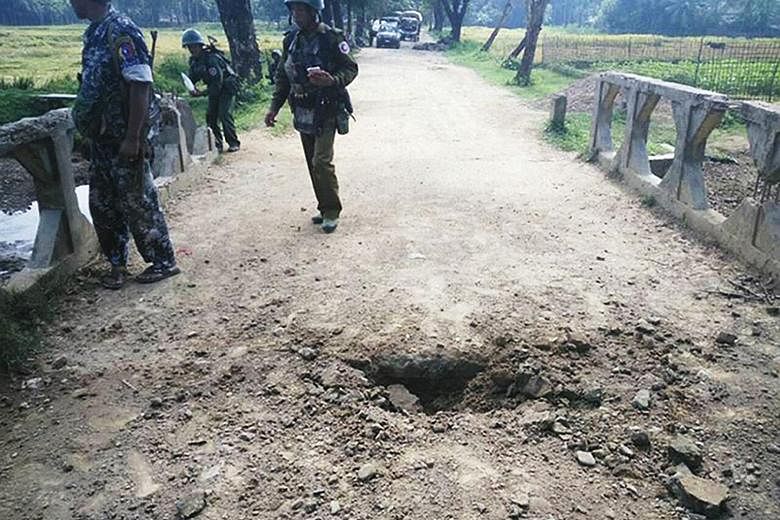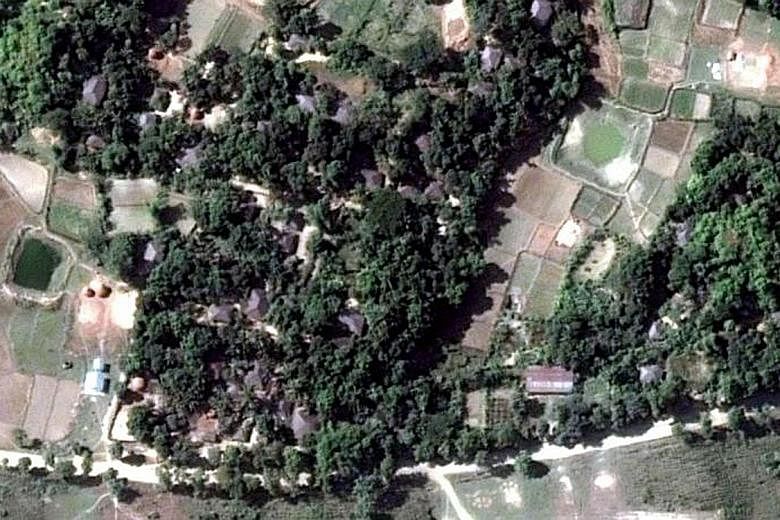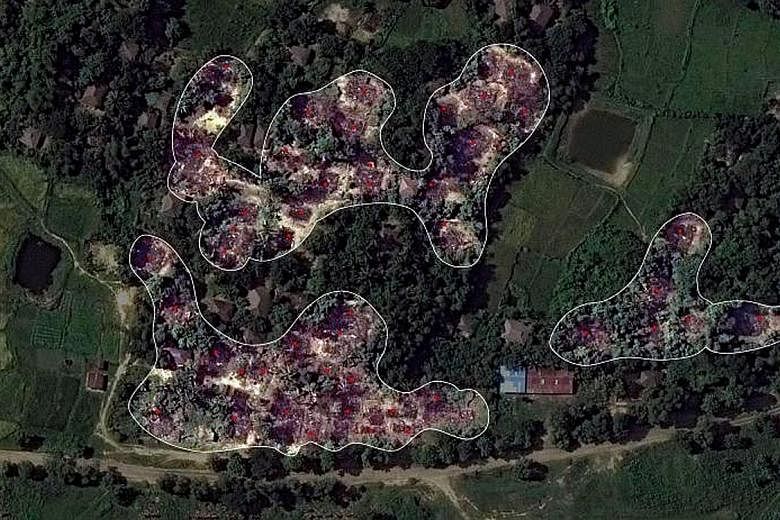YANGON • Myanmar's Rakhine state was hit by a fresh wave of violence at the weekend with more than 30 insurgents killed over two days of fighting, the military said, as fears soar for the strife-torn region.
Northern Rakhine, which is home to the Muslim Rohingya minority and borders Bangladesh, has been under military lockdown since surprise raids on border posts left nine police officers dead last month.
Soldiers have killed scores and arrested many more in their hunt for the attackers, who the government has said are radicalised Rohingya militants with links to overseas Islamists.
The crisis and reports of grave human rights abuses being carried out in tandem with the security crackdown have piled international pressure on Myanmar's new civilian government and raised questions about its ability to control the military.
Days of apparent calm were shattered last Saturday when, according to the army, six attackers and two soldiers were killed during a series of coordinated ambushes that were beaten back only with the help of helicopter gunships.
State information officer U San Nwe said that about 500 attackers were involved in the clash near Gwason village, south of Maungdaw, the main town in northern Rakhine.

The death toll jumped on Sunday following further clashes.
Myanmar's military said in a statement that 22 attackers armed with swords were killed near Dar Gyi Zar village on Sunday morning after they charged at soldiers.
Six other insurgents were killed during clashes elsewhere in the state on Sunday, it added.
The authorities have heavily restricted access to the area, making it difficult to independently verify government reports or accusations of army abuse.
The latest surge in fighting came as new satellite images released by Human Rights Watch on Sunday showed what it said was evidence of mass arson attacks against Rohingya villages. These images were taken last Thursday.
The watchdog's analysis showed more than 400 buildings torched in three Rohingya villages where the fighting has been taking place.
The military and the government have rejected allegations that troops have burned Rohingya villages, accusing insurgents of lighting the fires.
Last Saturday evening, Rohingya activists uploaded a graphic video showing the corpses of eight people dressed in civilian clothes, including a small baby.
The video-taker, speaking in Rohingya, said the victims died that day near Dar Gyi Zar village, with some showing bullet wounds. It was not possible to verify the authenticity of the footage.
The state has been simmering with religious tension ever since waves of violence between the majority Buddhist population and the Muslim Rohingya left more than 200 dead in 2012.
More than 100,000 people, mostly Rohingya, were pushed into displacement camps by the bloodshed and have languished in them since. Rights groups say these people face apartheid-like restrictions on movement and have repeatedly called on Myanmar de facto leader Aung San Suu Kyi to carve out a solution.
But Buddhist nationalists at home viciously oppose any move to grant the Rohingya citizenship, claiming they are illegal immigrants from Bangladesh, despite their long roots in the country.
Human Rights Watch's Asia director Brad Adams said in a statement: "(The) authorities should promptly establish a United Nations-assisted investigation as a first step towards ensuring justice and security for the victims."
AGENCE FRANCE-PRESSE, NYTIMES



